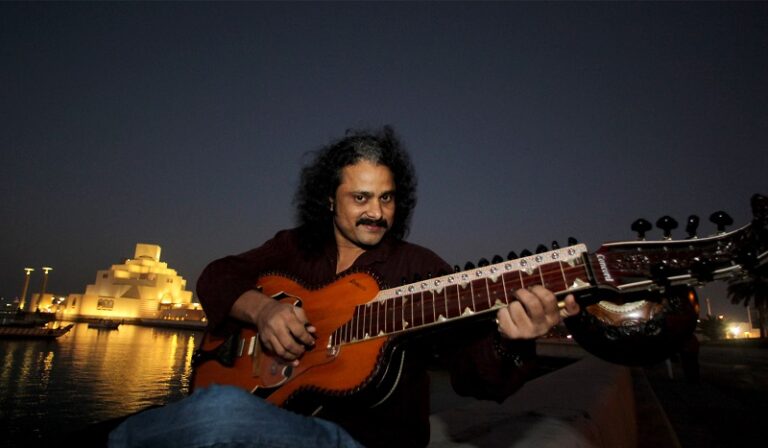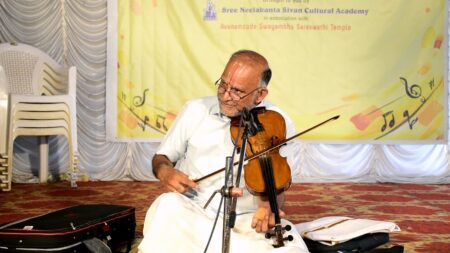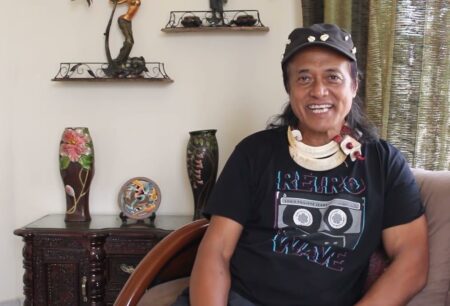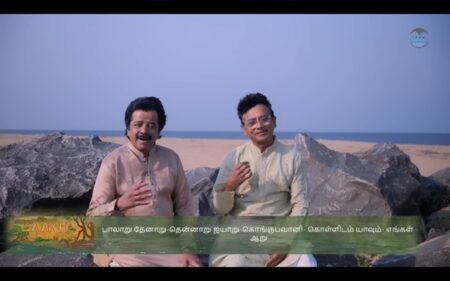One of the world’s only five players of the improvised Hindustani Mohan Veena, Kerala-born Poly Varghese is a ‘surprising disciple’ of maestro Pt Viswa Mohan Bhatt, a Grammy winner
World-renowned musician Pt Viswa Mohan Bhatt calls him a “surprising disciple”. That’s an apt distinction for Poly Varghese, known for his nonconformist life. Hailing from a coastal town in central Kerala, the 50-year-old is one of the five Mohan Veena artistes today. A much sought-after instrumentalist, Varghese has been learning the Mohan Veena from the maestro for a quarter-century now. According to Bhatt, Mohan Veena is Varghese’s destiny. “He can’t breathe without it.”
For starters, Mohan Veena is an intricate instrument with 22 main and 14 taraf strings. These are tuned to the notes of the raga to vibrate sympathetically, giving it the ability to offer impressive emotional expressions. The features of the instrument too have played a role in Varghese turning out to be a globetrotter. By far, he has conducted concerts in more than 40 countries. A strict vegetarian, Varghese believes his training in Carnatic music at Kerala’s premier performing-arts institute of Kalamandalam forms the foundation of his career that branched out to Hindustani classical.
Gurukul training
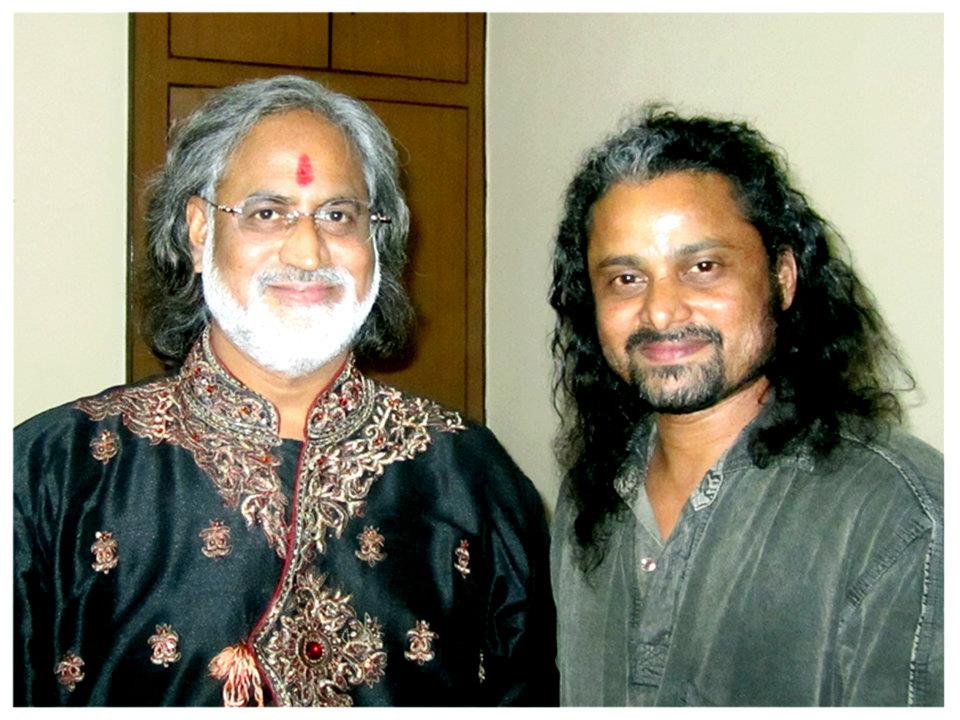
That said, his initiation into Mohan Veena was quite surprising. “Once I accidentally watched a performance of Guruji on Doordarshan. That served a spark,” says Varghese, whose native place is Valappadu near Thrissur. He wrote several letters to Bhatt, but the maestro never replied.
However, he met Bhatt later at Shantiniketan while pursuing a course in Hindustani music, who recognised Varghese and advised the student to join him at his home in Rajasthan. As a teacher, “Guruji” is a difficult taskmaster but very affectionate, says Varghese, who had rigorous gurukul training with Bhatt for five years. Bhatt trained Varghese to play in the ‘Gayaki ang’ (vocal style).
Fascinating ways to eclecticism
All the same, Varghese’s stint in Santiniketan and its nearest metropolis of Kolkata helped him get a taste of all genres of music. These included Baul, Sufi, Rabindra Sangeet and Kabir songs. Nevertheless, the period also saw him struggling to eke out a living. The musician had to do odd jobs: he was an undertaker in cremation grounds, would white-wash houses and play the tabla at brothels. “This journey enriched both my music and life,” says Varghese, who is also trained under the Gundecha brothers in the Dhrupad stream of Hindustani.
Varghese says he doesn’t believe in playing for the audience. “It is mere showmanship; I play for myself”. Music, he believes, is a conversation with the self. Such philosophies make Varghese a musician with a difference, making him connect with audiences across continents.
He has played at prestigious venues such as the Mozart Chamber in Vienna. In Beijing, he played with the opera and the flautist Tam Po Shek. In the US, he shared space with the likes of sitarist Amie Maciszewski, Rock flautist Sarah Jane Hargis and Sax player Paul Klemperer. He performed numerous concerts in the Gulf countries.
In India, Varghese has performed with most Hindustani maestros. He scored background music for many Bengali films, and Malayalam works such as Jeevan Massai (2001) and Kalavarkey (2003). Varghese recently underwent heart surgery and is all set to appear on stage this April in Bangalore.

